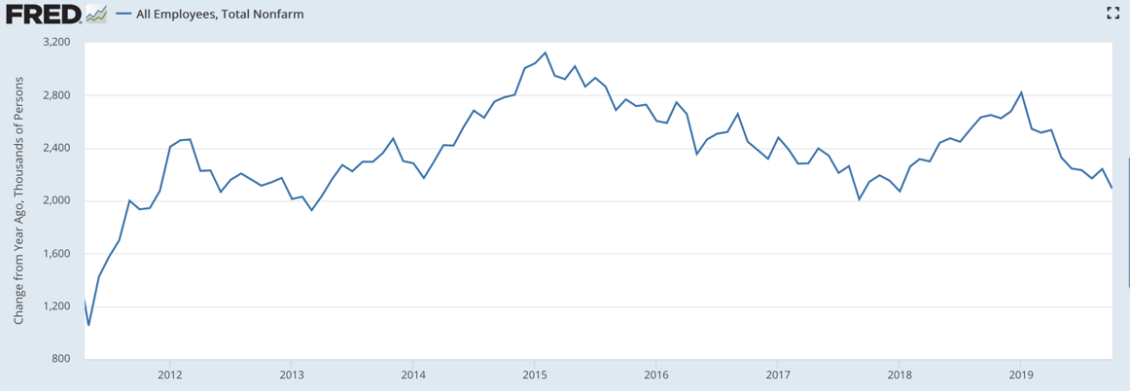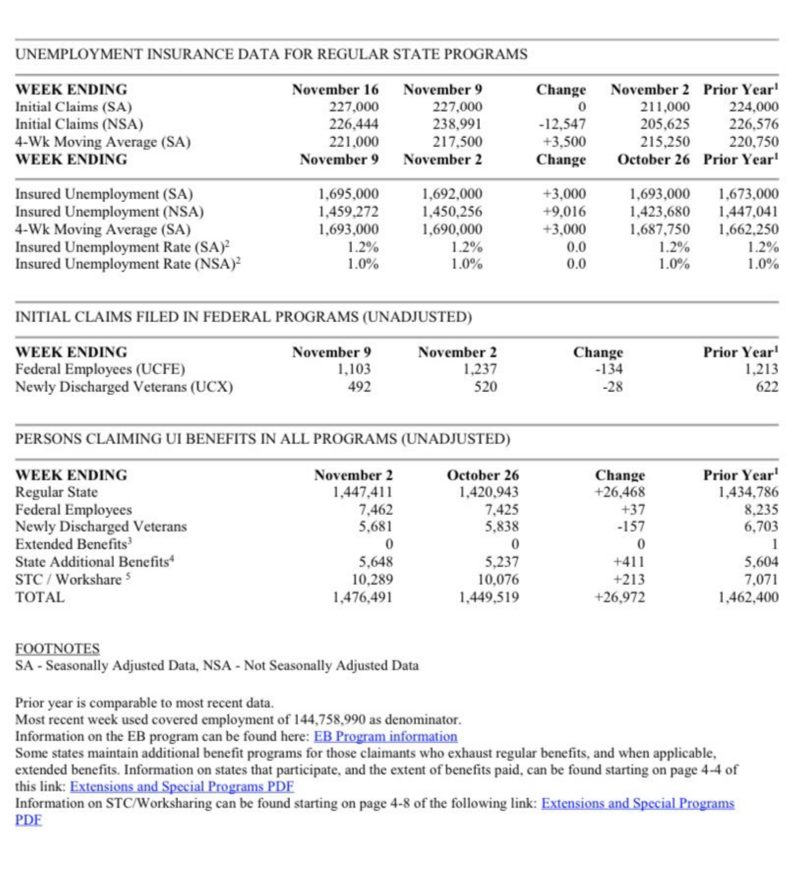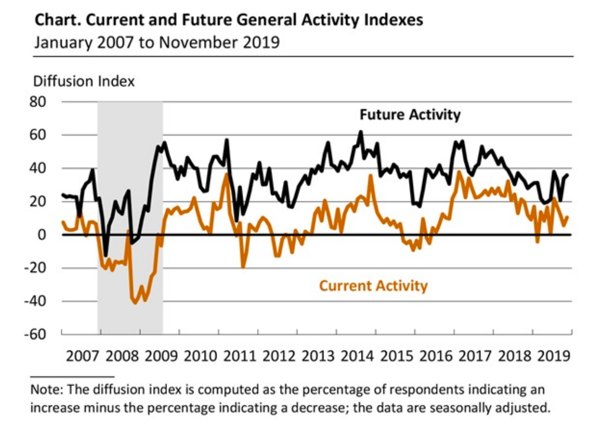Economic growth and social contracts in rich countries
Impeachment
In the last couple of weeks, at the expense of other thoughts, I have been consumed by the impeachment proceedings going on in the United States. I guess this is a byproduct of my having been born in, growing up in and now living in the DC area.
But it is also a byproduct of my having joined the US foreign service and becoming a diplomat more than a quarter century ago. I see things playing out that speak to me in very personal terms because I see people on the public stage where there are only two degrees of separation. If I had remained in the foreign service, I could even have been the one testifying before Congress. Luckily, I am not, having my judgement and my loyalty to country questioned before the entire world. In retrospect, I am satisfied that I made an early decision to get out of the foreign service and take my knowledge elsewhere.
Foreign ‘Affairs’
When I say “my knowledge”, part of what I am saying comes from the things that led me to the foreign service in the first place. And by that, I mean my curiosity about how the world works, my foreign language skill, and my understanding of the interaction of economics and policy. In recent weeks, as I have become ensnared in the rabbit hole of partisan trench warfare in the US, I have become trapped in the American media bubble too – toggling between conservative, neutral and liberal print and video sources.
But until a couple of days ago, I had almost entirely forgotten about the media from the rest of the world. Questioning whether my ‘fact set’ had been warped by exposure to only US-based (and some British) media sources, I started to re-engage German, Austrian, Swiss, Swedish, and Dutch media sources. And what I found was enlightening. So I’m going to tell you about it.
First, when it comes to impeachment, every single source I have heard or read from those several western European countries sees what’s playing out as a clear case of corruption being held to account, but only on a politically partisan basis. These foreign media all seem to be saying that the narrative is clear: US President Trump sought to ‘dirty up’ his potential 2020 political rival and to retroactively ‘rehabilitate’ his 2016 election campaign by extorting a foreign government dependent on the US. And they are also saying he did so purely for his own benefit in a manner at odds with stated US foreign policy goals. That’s what I am hearing from every single one of the some 15 sources of foreign language western European media I have consulted in the past few days.
Social Contract
But what I am also hearing is a lot of talk about what I would call social contracts. Just this morning, I was listening to the Austrian news broadcast Ö1 Morgenjournale. And they were talking about a collective bargaining agreement that resulted in a 2.35% average wage increase. And then the discussion afterwards was about whether this was a fair outcome. The way I took it was as an implicit recognition that companies (and governments more generally) have a ‘duty’ to maintain the standard of living of their workers. And the context in I was taking this in was that the Austrian media, companies and government were all implicitly agreed that there was a social contract and that collective bargaining was an important way to make sure that contract gets met.
Just before this, I had been listening to the previous night’s German news broadcast Tagesschau. And there, workers in Germany at Thomas Cook were lamenting that the British company was bankrupt and that they would all be forced to seek employment elsewhere. Tagesschau played a clip of one woman saying, in poignant and worried tones, that many of them were over 50 and had no idea where they would now turn. She said that she and her middle aged colleagues had thought they could retire at Thomas Cook, were blindsided by being thrown out of work, and felt like getting a new job was going to be tough.
As with the Austrian broadcast, I thought about this in terms of social contracts. The mere fact that Tagesschau inserted this clip into the main nightly news program tells you they thought this woman’s pleas were important. And for me, it pointed to the same question to which the collective bargaining agreement in Austria pointed: what is the role and responsibility of government in a rich, industrialized country to maintain living standards of all of its citizens?
What was unsaid but clear from how the information was presented is that both the Germans and the Austrians were saying governments (and companies) have an undeniable moral social obligation to ensure the prosperity of any- and everyone who depends upon it for financial stability and well-being. Would US media make the same implicit arguments in their presentation style? I don’t think so. To me, this is an area where there is a wide gulf between the US and all other advanced industrial nations, that includes Western Europe, Canada, Japan, Australia and New Zealand.
The Economy
In the US, the thinking is more that government’s role is to generate economic growth. American policy makers believe the invisible hand of market efficiency will make sure that the outcomes of that growth are distributed equitably such that government need only intercede in extreme and dire circumstances.
And indeed, US economic growth has been superior to growth in most advanced democracies for all of this economic up-cycle. But, just as I was writing this piece, the Markit composite ISM data news came over the wire. It showed the US PMI at 51.9, bang in line with expectations. Moreover, this number is up from 50.9 in October and 51.0 in September.
I see the data as alluding to a potential bottoming in US growth. Now, remember, growth has decelerated from nearly 3% in Q2 to an expected level of under 1% according to nowcasts from both the New York and Atlanta Fed estimates. That puts the US economy in jeopardy of stalling out and lapsing into recession if a large enough shock hits it.
But, there is some evidence that manufacturing, in particular is bottoming. The Philadelphia Fed November 2019 Manufacturing Business Outlook Survey numbers showed significant improvement. Notice the subtext though:
The indexes for current shipments and new orders both fell: The current new orders index decreased 18 points, while the shipments index decreased 9 points. Both the unfilled orders and delivery times indexes remained positive this month, suggesting higher unfilled orders and slower delivery times.
The firms reported overall increases in manufacturing employment this month, but the current employment index decreased 11 points to 21.5. Nearly 27 percent of the firms reported higher employment, compared with 34 percent last month. Over 5 percent of the firms reported decreases in employment this month, while 68 percent reported no change. The average workweek index also decreased but remained positive.
Employment is the Achilles Heel
I would say that the Philly Fed numbers dovetail with what I am seeing elsewhere in the data, namely that the employment market is softening. Here, you want to look at first derivative numbers to get a read as that gives you directionality. For example, look at the net add in non-farm payrolls on a rolling 12-month basis.

Source: St. Louis Fed
We see a clear downtrend from January 2019, coincident with the Fed’s about face on policy rates and leading the decline in real GDP growth. That trend is holding to the downside.
If you look at both initial and continuing claims data sets, the trend there has also now turned down too. As I put it yesterday:
IMPORTANT: The 4-week average of initial claims is now higher than year ago levels. Continuing claims have been higher for several weeks now. These are negative signs regarding likely growth trends pic.twitter.com/MayARK19JR
— Edward Harrison (@edwardnh) November 21, 2019

My view here is that when both year-over-year initial and continuing claims are rising, it is a sign of financial stress in households that will eventually leak into declines into consumption if these elevated year-on-year comparisons hold. So, we should watch these figures in coming weeks. The way I think about this is as year-on-year increases in claims representing some level of lost income or financial stress. If this stress lasts long enough or the rise is sharp enough, it will crimp consumption. And if that crimp is large enough and the baseline level of growth is low enough, it could even lead to a recession.
So I see the employment data as the Achilles heel of this economy as it undercuts consumption growth, which has been the sole buttress for economic growth in recent months.
Final thoughts
Getting back to my pivot to foreign media, though, I am still consumed by this impeachment stuff. I think, for Americans, it is hugely important because the universal foreign reaction to it signals that we in the United States are living in a media bubble colored by partisan politics in a balkanized media landscape. And that makes it nearly impossible to come together and find a common fact set on partisan domestic issues.
This is all very troubling to me because when the basic fact sets are so wide apart, there is no common understanding. That’s a world in which facts don’t matter because people have very different priors. It is also a world in which, almost universally, people ignore some facts, glom onto others and stick to their pre-existing views. See here, for example:
Essentially, when a person encounters information which suggests that their current beliefs are wrong in some way, they feel threatened, which causes them to generate a variety of negative emotions. This is especially likely when the beliefs in question are crucial to their self-concept, which means that they represent an important part of that person’s identity and ideology.
The negative emotions that people generate end up negatively impacting their ability to accept the corrective information that they encountered, by increasing the likelihood that they will refuse to process it properly, and by increasing the likelihood that they will attempt to find ways to discount it.
The fact that people often attempt to discount and reject corrective information that they encounter is what leads them to sometimes experience the backfire effect. Specifically, in their attempt to reject corrective information, people will generally first attempt to recall preexisting knowledge that they can use in their arguments, which could cause to reinforce that knowledge in their minds, and therefore increase their support of their preexisting beliefs.
Furthermore, when people argue against unwelcome information strongly enough, they often end up with more arguments to support their stance. This can cause them to believe that there is more proof in support of their viewpoint than there was before they were presented with the unwelcome evidence, which in turn can cause them to support their original stance more strongly than they previously did.
There are ways to counteract this effect. But I see few cases where this is happening. My prediction has been that, if you think the public impeachment hearings are going to shift public opinion, think again. They may actually harden pre-existing convictions.
I sense that the United States is now really on the verge of a civil war-like divide in attitudes. The next election cycle and economic recession will bring this to a head in a way we have not seen. So, be ready. And watch those employment stats! On the economy, that’s where the rubber hits the road.

Comments are closed.